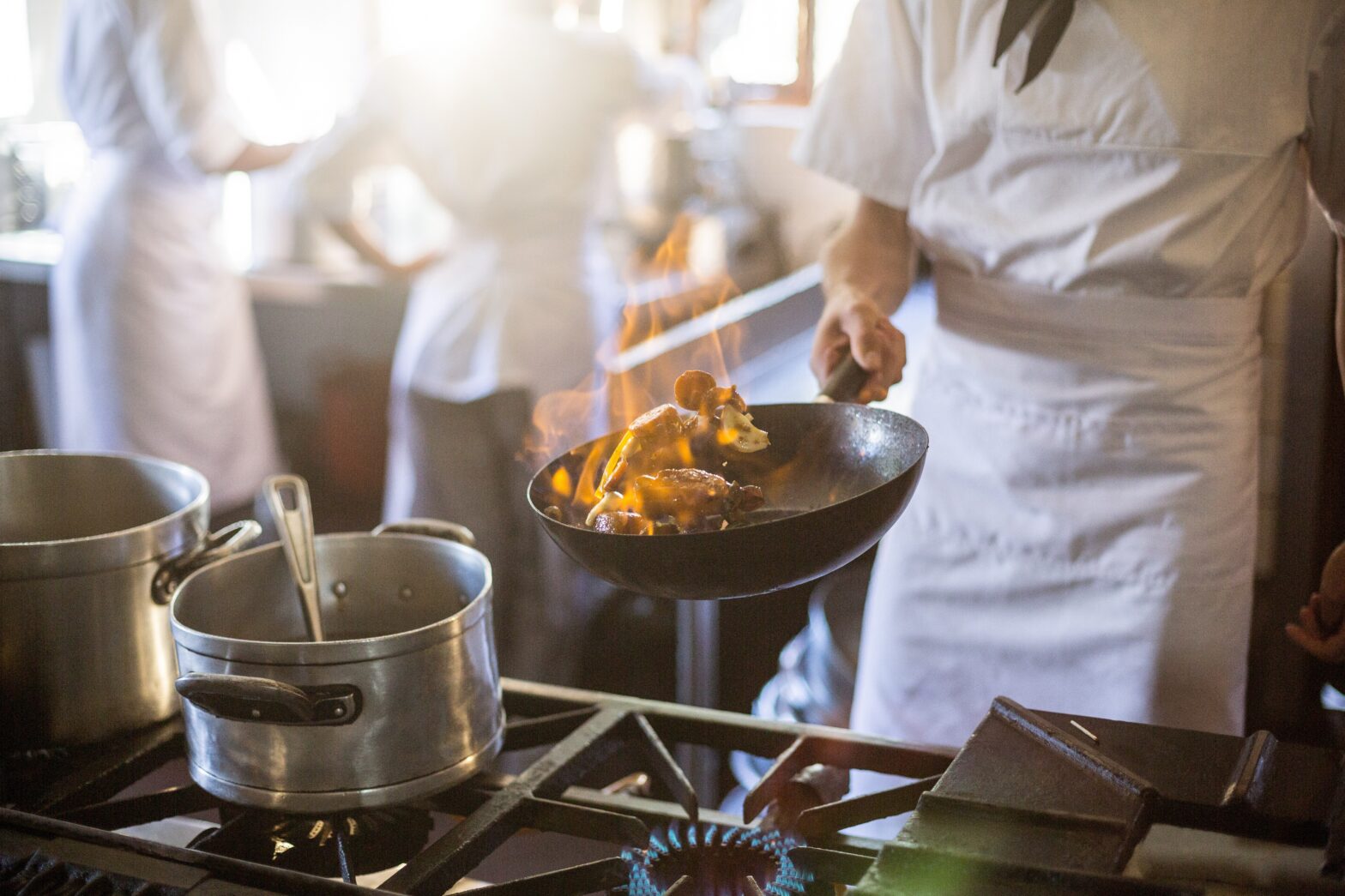Self-employment is at a record high as we’re now seeing emerging technology making it easier than ever to set up a business. Technology has been one of the biggest enablers for aspiring entrepreneurs, opening up opportunities through innovative apps and accessibility to an eager customer-base. With so many new entrants, there is greater risk that not all will succeed within such a competitive market place.
The best business ideas spawn from challenges we personally face in everyday life and our humble beginnings helped us to spot a gap in the market to introduce FoodStars. Having shared our own kitchen space with other foodie businesses, we realised there was a wider need for commercial and flexible kitchen space for those looking to either expand in their business or start-ups looking to launch a business with low levels of capital. And so FoodStars was born in 2015 – helping young and established businesses to roll-out their foodie products in a flexible, affordable and fitted kitchen space.
As well as experiencing the aches and pains of starting a small business first-hand, we work closely with our members who span from start-ups (e.g The Vurger Co) to more established restaurant chains (eg Peyton & Byrne, Sodexo). In just two short years, we have expanded from one kitchen (1,600 sq.ft) to four central London kitchen spaces (30,000 sq. ft) – while we have grown at a terrific level, we have had to overcome our fair share of challenges along the way.
Choosing the right location
The nature of our business and the fact that we need to be easily accessible to both the consumer and B2B audience means it’s very important to be based in a central location for easy access to a customer-base and to facilitate meetings with suppliers or prospects. One of our USPs is that we have centrally located spaces in London (Bethnal Green, Shoreditch, Vauxhall and Bermondsey) which is essential for our business model; but this didn’t come without its challenges.
Finding big enough spaces in one of the most densely populated cities in the UK proved to be time-consuming and we went back and forth with landlords and property owners to find the perfect space. After a lot of research, we realised that we could utilise the vast spaces underneath railway arches without sacrificing on location – don’t be afraid to think outside the box and look at some of the more unusual sites.
Introducing a new business model
While we could easily see how a service like ours would succeed, we were essentially introducing a new business model to the market. Individuals and businesses like to stick with what they know and can be wary of a new product or service they don’t know much about. To overcome this challenge, we made sure we didn’t cut corners when developing a professional website. Our website offers the first glimpse into our brand for potential members and by presenting a sophisticated and honest platform, we are able to showcase our business model, quality offering and show how we stand out amongst competitors.
However, at the end of the day, we knew there was appetite for what we had to offer (through market research and personal experience) and many start-ups in particular were keen to trial the new service which offered them a flexible and affordable solution to starting up a business. The emergence of new technology platforms like UberEats compliment our business model and has led to an increase in foodie companies looking for alternative kitchen spaces; this is where our offering comes in handy within a saturated property market in London.
Standing out from the competition
As with many other industries, the food sector is highly saturated. In some ways, this can work in our favour as we can appeal to a higher number of members, but on the other hand, this could open us up to more competition. When setting up the business, we analysed exactly what our competitors had to offer, and we made it better. For example, other spaces might have time restrictions on their service; we offer 24-hour opening hours and maintenance. We also ensure the best possible locations, highest standards in infrastructure and services, as well as optional add-ons like storage units and reserved parking and office space. Always make sure you’re one step ahead to separate yourself from the competition.
Work-life balance
One of the biggest challenges of starting up and maintaining a business is achieving a healthy work-life balance. FoodStars is our ‘baby’ and it can be difficult to stop ourselves working all the hours under the sun to ensure growth and success. One day we could find ourselves unblocking kitchen drains and another day we’re agreeing contracts. In the start-up phase, it is always going to be very intensive; you are pulling plans together, setting up initial and follow-up meetings, developing strategies and test-running your product or service.
Although our hours have been long over the last two years, we needed this dedication and determination to get where we are today. More recently, we have found ways to manage our time more effectively, helping us to become more productive in the long run. By hiring and working with an incredible team of community managers and maintenance specialists amongst others, we have managed to achieve a healthier balance and can wholeheartedly say that they have had an integral impact to our road to success.
Finding support
While friends and family were very supportive of our business plan, we encountered our fair share of doubters. We are young men who have broken into a new market so in turn, have received a lot of criticism along the way. Many individuals and companies have tried to tell us how to run our business but by having faith in our product and having immense support from our happy members, we have quashed any doubt which might have shaken us two years ago. Believe in your product and those around you will too.
Will Beresford is co-founder of FoodStars.





